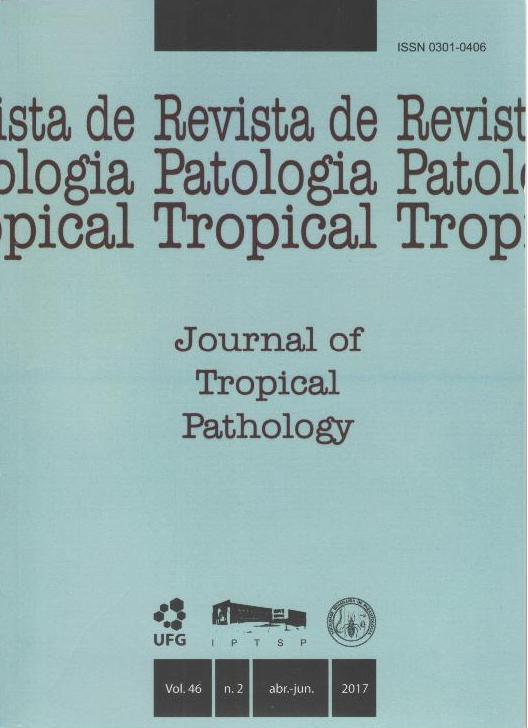INTESTINAL PARASITES IN CHILDREN WITH NEUROLOGICAL DISORDERS TREATED AT A REHABILITATION INSTITUTION IN NITERÓI, Rio de Janeiro, BRAZIL
DOI:
https://doi.org/10.5216/rpt.v46i2.47482Palavras-chave:
Neurodevelopmental disorders, parasites, Blastocystis sp., factors, frequency.Resumo
Enteroparasitosis presents high prevalence in developing countries, and is frequent among children, and those with disabilities present even higher susceptibility. The present study evaluated 156 children with neurological disorders to whose parents or guardians an epidemiological questionnaire was applied with a view to identifying risk factors. Stool samples were processed using Ritchie modified by Young, Faust et al., Lutz and Baermann-Moraes techniques. Thirteen samples (8.3%) were positive, being Blastocystis sp. the most frequent parasite (46.2%). Higher positivity was observed for protozoa, especially non-pathogenic. A statistically significant association was only found between the educational level of the mother
and positivity for enteroparasites. Among positive children, the habit of placing their hands and objects in their mouths and the consumption of raw vegetables was more frequent. The results show the existence of care and sanitation minimizing the acquisition of intestinal parasite diseases. It is important to alert parents and caregivers about personal hygiene, water and food quality, as well as the environment, considering that transmission of these parasites occurs via the fecal-oral route, in association with multiple factors.
Downloads
Downloads
Publicado
Como Citar
Edição
Seção
Licença
The manuscript submission must be accompanied by a letter signed by all authors stating their full name and email address, confirming that the manuscript or part of it has not been published or is under consideration for publication elsewhere, and agreeing to transfer copyright in all media and formats for Journal of Tropical Pathology.

